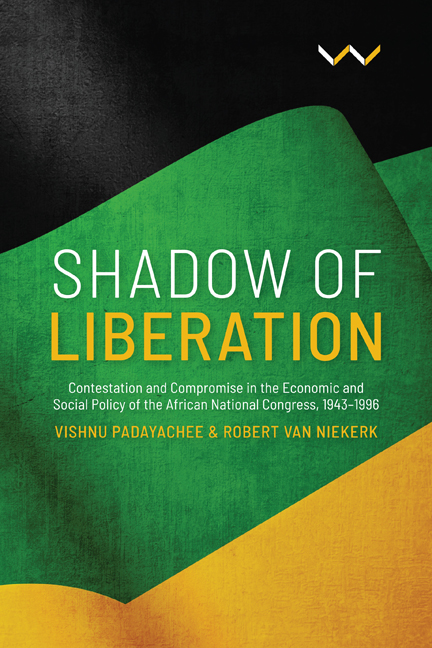 Shadow of Liberation
Shadow of Liberation Book contents
- Frontmatter
- Contents
- Acronyms and abbreviations
- Preface
- Acknowledgements
- Chapter 1 The Context of Economic and Social Policy-Making in the ANC
- Chapter 2 African Claims, the Freedom Charter and Social Democracy, 1943–1960
- Chapter 3 Incarceration, Exile and Homecoming, c.1960–c.1991
- Chapter 4 Economic Policy Debates during a Decade of Liberation, 1985–1993
- Chapter 5 On the Way to GEAR, 1994–1996
- Chapter 6 Making Sense of the Economic Policy Debates
- Chapter 7 South African Reserve Bank Independence
- Chapter 8 The Politics of Health Policy-Making in the Transition Era, 1990–1996
- Chapter 9 Interpretation and Conclusion
- Notes
- Bibliography
- Index
Chapter 8 - The Politics of Health Policy-Making in the Transition Era, 1990–1996
Published online by Cambridge University Press: 20 January 2022
- Frontmatter
- Contents
- Acronyms and abbreviations
- Preface
- Acknowledgements
- Chapter 1 The Context of Economic and Social Policy-Making in the ANC
- Chapter 2 African Claims, the Freedom Charter and Social Democracy, 1943–1960
- Chapter 3 Incarceration, Exile and Homecoming, c.1960–c.1991
- Chapter 4 Economic Policy Debates during a Decade of Liberation, 1985–1993
- Chapter 5 On the Way to GEAR, 1994–1996
- Chapter 6 Making Sense of the Economic Policy Debates
- Chapter 7 South African Reserve Bank Independence
- Chapter 8 The Politics of Health Policy-Making in the Transition Era, 1990–1996
- Chapter 9 Interpretation and Conclusion
- Notes
- Bibliography
- Index
Summary
After its unbanning, the ANC faced the dilemma of how to move from opposing apartheid to presenting social policy alternatives that would change a radically unequal, racialised system of health and welfare. The legacy of pre-democratic South Africa established structures of class and race inequality that aimed to uphold the ‘good society’ for a white minority at the consequent expense of the black majority, creating for the latter what could, drawing on Richard Titmuss (1974: 75), be aptly described as a racialised ‘diswelfare’ state. In health care, the key mechanisms through which this racialised ‘diswelfare’ state was achieved in the apartheid era were: (i) differential allocation of funding to public health on the basis of race; (ii) a racialised labour market and the consequent unequal access to private and public health on the basis of race and class (income, employment status); (iii) the fragmentation of service delivery among 14 administrations, all of which were constituted on a racial basis; (iv) an inappropriate balance between the primary preventive and tertiary curative level components of health care, tipped in favour of the latter, in the context of the impoverished social conditions of the majority of South Africa's black inhabitants.
The structuring of health policy to provide for the health needs of the inhabitants in South Africa was fundamentally conditioned by the relationship between the public and private sector. The racial and income dualism of the labour market and the manner in which it influences access to social provision in South Africa is most tellingly revealed in the case of private health care. Historically, the private health care sector in South Africa has been a more significant sector in human resource and budget terms than the public sector. It was estimated that private finance accounted for 61 per cent of all health care expenditure by 1992/1993 – a year before the democratic transition (FFC 1998: 35). Private health care in South Africa (referred to as medical aid schemes) are a form of private occupational health care. These private medical schemes offer variable ‘packages’ of health care services, provided by private general practitioners and hospitals contracted into the medical aid schemes, and provide health care services on a strict fee-for-service basis.
- Type
- Chapter
- Information
- Shadow of LiberationContestation and Compromise in the Economic and Social Policy of the African National Congress, 1943–1996, pp. 199 - 226Publisher: Wits University PressPrint publication year: 2019
